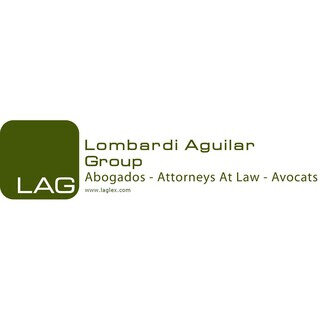Best Real Estate Contracts and Negotiations Lawyers in Panama
Share your needs with us, get contacted by law firms.
Free. Takes 2 min.
Free Guide to Hiring a Real Estate Lawyer
Or refine your search by selecting a city:
List of the best lawyers in Panama
About Real Estate Contracts and Negotiations
Real Estate Contracts and Negotiations play a critical role in the buying, selling, leasing, and development of property. Navigating these complex legal processes requires careful attention to detail and knowledge of local laws and regulations. In the context of Panama, understanding these aspects is vital to ensure that property transactions are conducted smoothly and legally.
Law in Panama: An Overview of Real Estate Contracts and Negotiations
Panama has a robust legal framework governing real estate transactions. The country's real estate laws require a formal agreement between parties, usually documented through a written contract. These contracts cover various aspects such as the sale or lease terms, payment arrangements, and conditions of property transfer. Negotiations often take place to ensure the terms satisfy both parties' needs and comply with Panamanian law.
Why You May Need a Lawyer
There are numerous situations where legal support may be necessary:
- Drafting or reviewing contracts to ensure they meet legal standards and protect your interests.
- Resolving disputes arising from contract terms, including breach of contract issues.
- Guidance through the buying or selling process, especially for foreign investors unfamiliar with local laws.
- Assisting with negotiations to achieve favorable terms during property transactions.
- Navigating title verification to confirm rightful property ownership.
- Addressing zoning laws and property usage restrictions that impact real estate development.
Local Laws Overview
Panamanian property law includes several key components:
- Title System: Panama operates under a public registry system which verifies property ownership.
- Contract Requirements: Formal, written contracts are mandatory for all real estate transactions to be enforceable.
- Notary Role: Contracts often require notarization, ensuring identity verification and legal compliance.
- Property Taxes and Fees: Transactions may incur specific taxes and fees, which legal advice can help clarify.
- Foreign Ownership: While Panama encourages foreign investment, there are unique provisions foreign buyers need to understand.
Frequently Asked Questions
What is the importance of property title verification in Panama?
Title verification ensures the seller is the legal owner, preventing future legal disputes regarding property ownership.
Are there restrictions on property ownership for foreigners?
Foreigners can own property in Panama, but there are specific areas where ownership is regulated or restricted.
What taxes are applicable to real estate transactions?
Transactions typically involve transfer taxes, capital gains taxes, and property taxes, each varying by property type and value.
Is it necessary to have a lawyer when buying real estate in Panama?
While not legally required, hiring a lawyer is highly recommended to navigate legal complexities and protect your interests.
How are real estate commissions handled in Panama?
Real estate agents usually charge around 5% commission on property sales, typically paid by the seller.
What are the risks of buying property without a formal contract?
Lack of a formal contract can lead to disputes, unenforceable agreements, and potential financial losses.
How can zoning laws affect my real estate investments?
Zoning laws dictate property usage, which can limit or enhance investment opportunities based on intended property use.
What steps should I take to prepare for real estate negotiations?
Understand market conditions, have clear objectives, be prepared to compromise, and consult with a real estate professional.
What role does a notary play in real estate transactions?
Notaries authenticate documents, confirm identities, and ensure transactions comply with Panamanian law.
Are there legal protections for tenants in lease agreements?
Yes, laws protect tenants' rights, including eviction processes and lease terminations.
Additional Resources
To further assist with legal matters in real estate, consider these resources:
- The Panamanian Public Registry - for property title verification.
- The Ministry of Housing and Territorial Planning - offers guidelines on housing policies.
- Local real estate law firms - provide specialized legal services tailored to real estate matters.
- Expat community forums - offer personal insights and experiences from foreigners who have undergone similar processes.
Next Steps
If you require legal assistance with Real Estate Contracts and Negotiations in Panama, here’s how to proceed:
- Conduct Research: Begin by understanding the basics of Panamanian real estate law.
- Identify Legal Needs: Assess your specific legal requirements, whether drafting contracts or seeking dispute resolution.
- Consult Professionals: Engage with a licensed Panamanian lawyer specializing in real estate for tailored guidance.
- Address Documentation: Ensure all necessary documents are prepared and verified as per legal standards.
- Stay Informed: Keep updated on any legislative changes regarding real estate in Panama to remain compliant.
Lawzana helps you find the best lawyers and law firms in Panama through a curated and pre-screened list of qualified legal professionals. Our platform offers rankings and detailed profiles of attorneys and law firms, allowing you to compare based on practice areas, including Real Estate Contracts and Negotiations, experience, and client feedback.
Each profile includes a description of the firm's areas of practice, client reviews, team members and partners, year of establishment, spoken languages, office locations, contact information, social media presence, and any published articles or resources. Most firms on our platform speak English and are experienced in both local and international legal matters.
Get a quote from top-rated law firms in Panama — quickly, securely, and without unnecessary hassle.
Disclaimer:
The information provided on this page is for general informational purposes only and does not constitute legal advice. While we strive to ensure the accuracy and relevance of the content, legal information may change over time, and interpretations of the law can vary. You should always consult with a qualified legal professional for advice specific to your situation.
We disclaim all liability for actions taken or not taken based on the content of this page. If you believe any information is incorrect or outdated, please contact us, and we will review and update it where appropriate.
Browse real estate contracts and negotiations law firms by city in Panama
Refine your search by selecting a city.
















